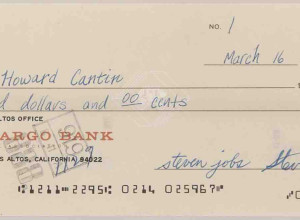March 27, 2012 |
Slow Books Movement

By now, most everyone has heard of the Slow Food Movement, which began in the 1980s with the aim to change the way we eat. It argues that people are happier and healthier when preparing and eating sit-down meals, which require more time to arrange and consume than their fast food alternatives.
A new piece in the Atlantic by Maura Kelly applies this same argument to reading. Kelly makes a call for a "Slow Books Movement," to counteract the effects of "fast entertainment," such as watching television or reading blog posts (like this one). Instead, she says we should pick up a book during our downtime, replacing some of the time we spend on the Internet or in front of the TV with quality reading.
But it's not enough to read, say, a thriller or a romance novel. Kelly instead calls for reading literature, classics in particular, at the rate of about 30 minutes a day.
Kelly modifies a Michael Pollan slogan for the movement's rallying words: "Read books. As often as you can. Mostly classics."
Kelly cites a number of benefits: literature makes us smarter, improves our capacity for thought and empathy, helps us define our identities, and makes us feel good about ourselves.
Kelly's movement is all-encompassing when it comes to technology. Kindles are welcome here. But it's a movement whose virtues extend deep into the rare book community. Participants in the Slow Books Movement should patronize antiquarian bookshops, where centuries of literature, both canonical and otherwise, await their perusal. Thanks to antiquarian booksellers you can stumble across forgotten classics awaiting re-discovery. For example, I would never have read Elizabeth Madox Roberts, one of the great Southern writers now vastly under-appreciated, if I had not bumped into The Great Meadow in an antiquarian bookshop in North Carolina.
So I cheer on the Slow Books Movement and hope it has the sense to discover Slow Books where they're waiting to be found: on the shelves of antiquarian bookshops around the world.















